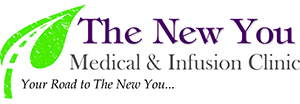Hypertrophic Cardiomyopathy Treatment in Fort Worth, TX

Hypertrophic Cardiomyopathy (HCM) is a medical condition which causes the abnormal enlargement (hypertrophying) of heart muscle cells, often leading to the thickening of the ventricle walls of the heart and changes to the mitral valve. A thickening heart muscle (myocardium) can cause functional impairment of the heart, and is a leading cause of sudden cardiac-related death in any age group as well as the leading cause of sudden death in young athletes. If the thickening begins to impede the heart's blood flow, the condition is then referred to as hypertrophic obstructive cardiomyopathy.
HCM poses a risk if left untreated (potentially leading to life-threatening arrhythmias) and, because it can present few, if any, symptoms, it often goes undiagnosed. However, HCM is treatable and, in most patients who receive treatment, life expectancy is unaffected.
To schedule a consultation with a qualified healthcare provider in Fort Worth that specializes in hypertrophic cardiomyopathy treatment, call (817) 203-2760 or contact The New You Medical & Infusion Clinic online.
Hypertrophic Cardiomyopathy Symptoms
For some with HCM, they experience little to no symptoms. Others with HCM can experience severe symptoms which could lead to many dangerous complications. The most frequently experienced hypertrophic cardiomyopathy symptoms include:
- Shortness of breath or chest pain, particularly during exercise
- Fainting episodes, typically during or after exercise or exertion
- Heart palpitations (rapid, fluttering or pounding heartbeats) or heart murmur (detected by your healthcare provider upon listening to your heart)
You might also experience abnormal heart rhythms (arrhythmias) and difficulty breathing, which should prompt a visit to your healthcare provider as these symptoms indicate a serious health risk.
Hypertrophic Cardiomyopathy Cause
Although a precise cause of hypertrophic cardiomyopathy is yet to be understood, common factors increasing your likelihood for developing the condition include abnormal genes (gene mutations). A family member or close relative who has been diagnosed with HCM is enough reason to be screened for the disease. HCM can also develop as the result of:
- High blood pressure
- Thyroid disease
- Aging
Hypertrophic Cardiomyopathy Diagnosis
A discussion of symptoms you are experiencing along with your medical and family medical history will be part of the diagnostic process. A physical examination will follow, including several diagnostic tests, which could include:
- Transthoracic echocardiogram: A form of ultrasound used to visualize your heart.
- Transesophageal echocardiogram: A test which is recommended to get more-detailed images of the heart, and which is typically recommended in order to achieve closer examination of your mitral valve. The test consists of inserting a device called a transducer into your throat and into the esophagus.
Additionally, tests may be ordered to examine how HCM has affected your overall health. These include:
- Electrocardiogram (EKG)
- Cardiopulmonary exercise testing
- Holter monitor
- Cardiac MRI
- Cardiac catheterization
If a family member or close relative has been diagnosed with hypertrophic cardiomyopathy, a healthcare provider can discuss genetic testing with you to determine your likelihood of developing the condition.
Hypertrophic Cardiomyopathy Treatment
Hypertrophic cardiomyopathy treatment will likely consist of prescription medications to relax the heart muscle and slow the heart rate, aiding in the heart's efficient pumping. Medications to control your heart's rhythm will also likely be prescribed. Should you suffer from atrial fibrillation, an irregular, rapid heartbeat that impedes proper blood flow, your healthcare provider may prescribe blood thinners to reduce your risk of blood clots. Additional treatment courses could include:
- Septal myectomy: An open-heart surgery to remove part of the thickened, overgrown septum between the ventricles. This procedure improves blood flow and reduces mitral regurgitation.
- Septal ablation: This procedure consists of destroying a small portion of thickened heart muscle by injecting alcohol into the artery, supplying blood to that area.
- Implantable cardioverter-defibrillator (ICD): Likely recommended if you have a life-threatening heart rhythm disorder (arrhythmia) such as ventricular tachycardia or ventricular fibrillation, an ICD continuously monitors your heartbeat and is implanted into your chest like a pacemaker.
Hypertrophic Cardiomyopathy Complications
While those with HCM, when properly treated, often live normal lives, the condition is serious in nature and may lead to a number of complications, including:
- Obstructed blood flow
- Dilated cardiomyopathy
- Mitral valve problems
- Arrhythmia
- Heart failure
- Sudden cardiac death
If you suspect you may have hypertrophic cardiomyopathy, it is critical to seek proper treatment to ensure your health is monitored and an appropriate treatment course is taken. Patients with HCM who receive treatment typically live normal lives. Schedule a consultation with a qualified healthcare provider in Fort Worth that specializes in hypertrophic cardiomyopathy treatment. Call (817) 203-2760 or contact The New You Medical & Infusion Clinic online.
The New You Medical & Infusion Clinic
Address
100 Grapevine HwyHurst, TX 76054
(817) 203-2760
https://www.newyoumedclinic.com/
Hours
Mon:
10:00 am - 6:00 pm
Tue:
10:00 am - 6:00 pm
Wed:
10:00 am - 6:00 pm
Thu:
10:00 am - 6:00 pm
Fri:
Closed
Sat:
Closed
Sun:
Closed

